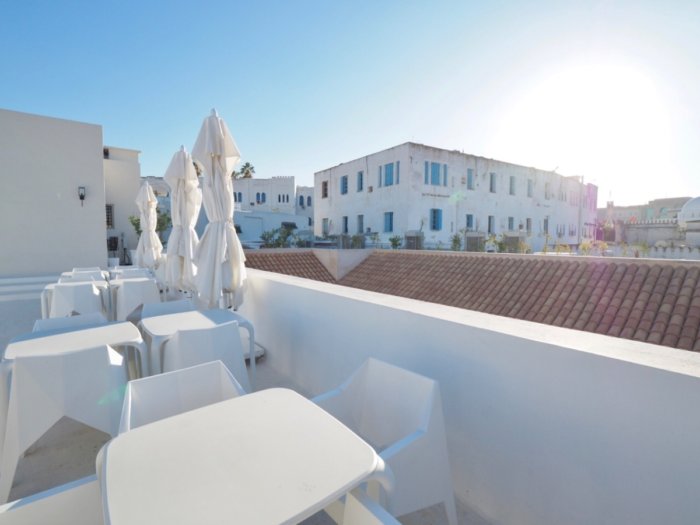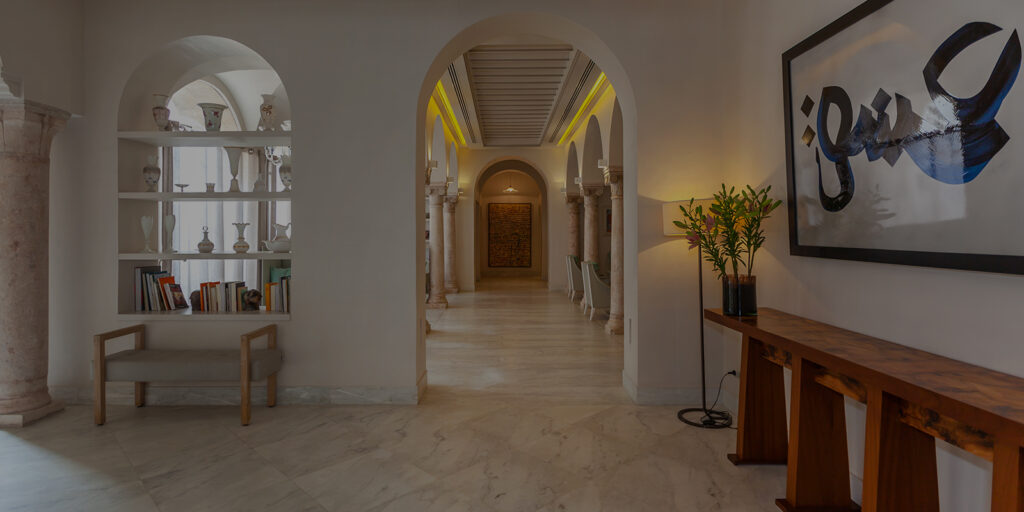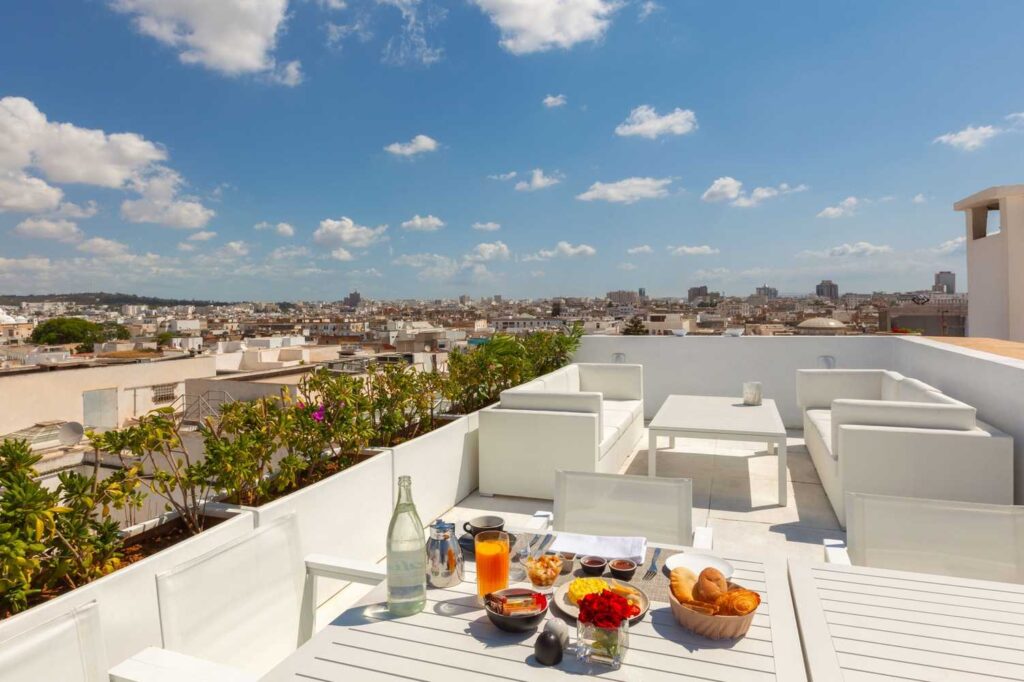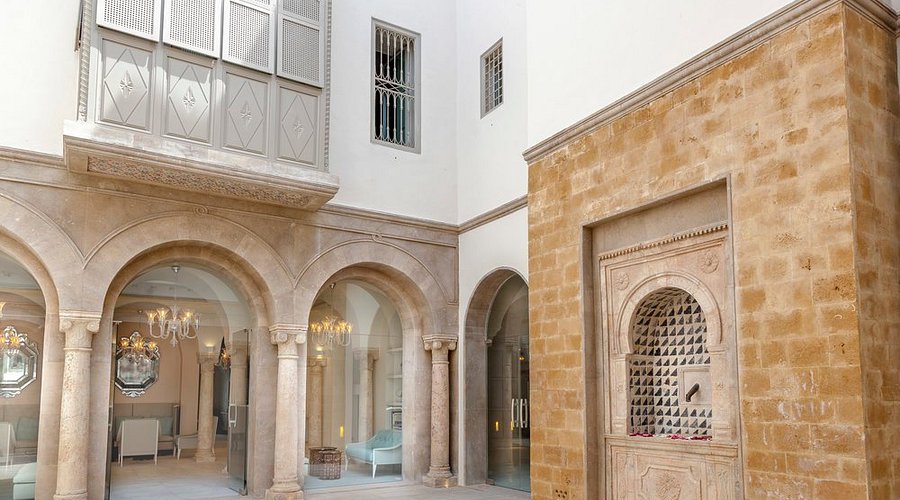At a Glance
- Restored 18th-century palace blending Tunisian heritage with refined five-star comfort and modern elegance.
- Intimate 16-suite retreat near Zitouna Mosque, offering authentic Medina calm and rooftop dining.
- Hammam spa and rooftop restaurant deliver serene experiences rooted in Tunisian culture and craft.
Situated within the UNESCO-listed old Medina, Dar El Jeld Hotel & Spa Tunis blends timeless Tunisian craftsmanship with five-star comfort.
Behind carved wooden doors, this restored palace feels like a living piece of history, fragrant with orange blossom and echoing with calm. Every mosaic, courtyard, and whisper of water tells a story of a city that remembers.
Set inside a restored palace from another century, the property has found a way to hold on to its soul. Its restoration was handled by the Abdelkefi family, known for their care in keeping Tunis’s architectural stories alive.

They didn’t polish away the past. They cleaned it gently, revealing details, a mosaic corner here, a hand-painted ceiling there, that speak of the patience of Tunisian artisans.
The result is not a showpiece but a living space. Sunlight slides across patterned tiles, fountains whisper in shaded courtyards, and the rhythm of daily life continues much as it has for generations.
A Step Inside the Medina
The hotel sits near Zitouna Mosque and Kasbah Square, in the middle of the Medina’s maze of alleys. Outside, brass workers hammer their craft and spice sellers call to passersby. Step back inside, and the tone changes, cooler air, a flicker of birds above the lemon trees, the soft trickle of water. The contrast is sharp and beautiful.

Guests often spend the day wandering the souks, then return to mint tea in the courtyard or to the rooftop at sunset, where the sky folds slowly into the sea. The pace of life here encourages a kind of surrender — to quiet, to reflection, to stillness.

Rooms that Breathe
With only 16 suites, Dar El Jeld feels intimate. No two rooms are quite the same. Arched windows, handwoven fabrics, and ceilings that tell their own stories give each one character. The bathrooms are cool and generous, finished in marble with deep tubs and soft lighting.
There’s no flash or extravagance, just comfort done with care. The staff seem to appear and disappear with the rhythm of the place, offering help when needed and silence when not.

Dining on the Rooftop
Above the rooftops of Tunis, the hotel’s restaurant has become one of the city’s quiet legends. Lunch is served with a view of minarets and domes; dinner comes with flickering lanterns and the low hum of the Medina below.
The menu is rooted in Tunisian flavors but shaped by Mediterranean balance, olive oil from nearby groves, seafood from the coast, vegetables from the market that morning. Each dish feels like a story retold: part Berber, part Arab, a trace of Ottoman spice and a whisper of French grace.
Next door, the old Dar El Jeld Restaurant continues its long run as one of the capital’s finest. Diplomats, locals, and travelers cross paths there, sharing plates and conversation under an 18th-century ceiling that has seen centuries pass.

The Hammam and the Heart of Calm
Hidden deep inside the palace is the hammam, tiled, domed, softly lit. Here, steam, water, and scent take over. The rituals are old: black soap scrubs, argan oil massages, a final rinse that feels almost like a baptism. It’s not a large spa, but it feels personal, as if made for quiet thought more than indulgence.
A Roof, a View, a Pause
The terrace is where mornings begin and evenings end. Breakfast comes with the sun, and at night, the lights of the Medina flicker like fireflies below. The space hosts small weddings, dinners, and gatherings that feel more like reunions than events.
Even the meeting rooms keep that spirit, elegant without being stiff, grounded in the calm that defines the rest of the house.

Between Then and Now
Dar El Jeld is a hotel, yes, but also a reflection of Tunis itself, layered, old, graceful, and alive. Its beauty lies not in excess but in restraint.
Luxury here is not a show. It’s a gesture: a door held open, a room that smells faintly of jasmine, a staff member who remembers your name. When you leave, you don’t feel like you’ve stayed at a hotel. You feel like you’ve stepped out of a story that still has more to tell.















